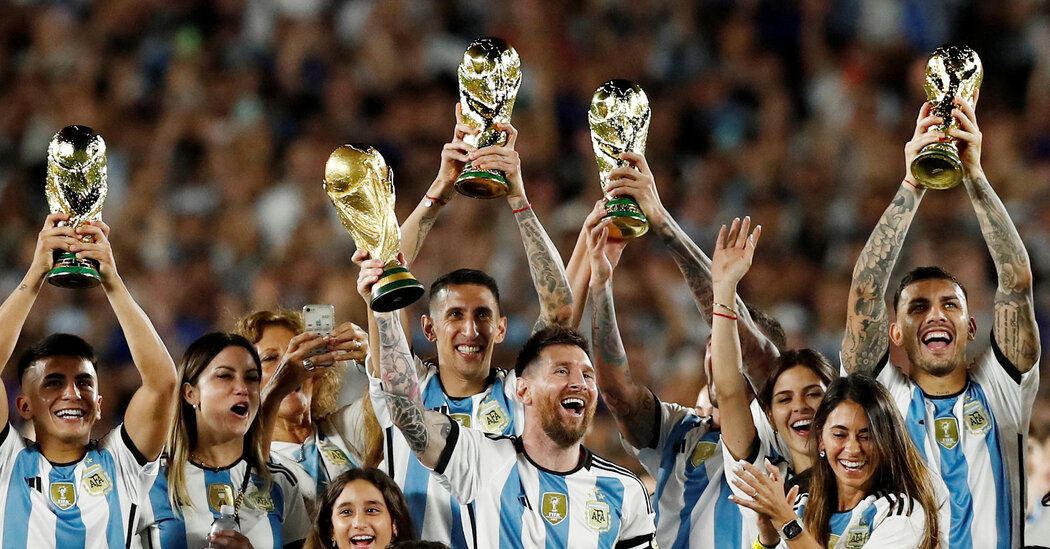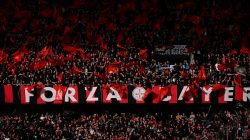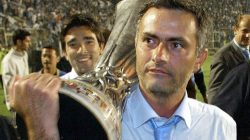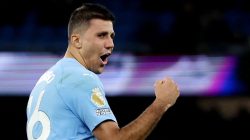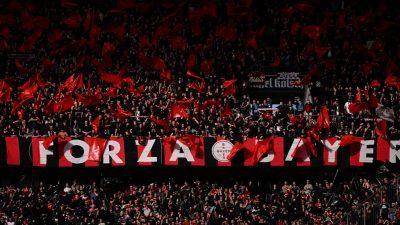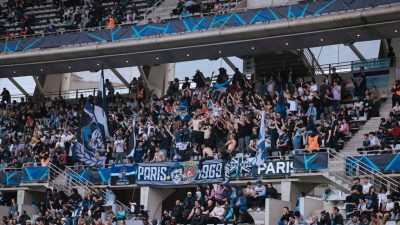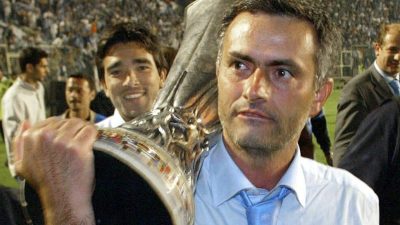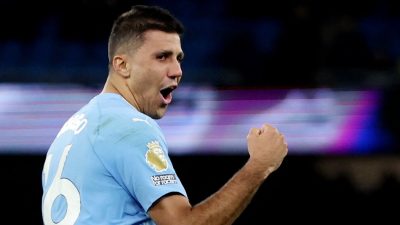When Alexis Mac Allister returned to his day job, he was greeted by a standing ovation, an Argentine flag and a set of strategically placed cannons that showered him with blue, white and gold glitter. His Premier League team, Brighton, had even gone to the trouble of commissioning a scale-model replica of the World Cup trophy for him to lift.
Few of Mac Allister’s teammates on the Argentina squad that became world champions three months ago experienced such a lavish welcome when they returned to their clubs, but most were treated to some sort of celebration, a heartfelt recognition of their achievement.
Defender Lisandro Martínez was applauded onto the field at Manchester United. The reserve goalkeeper Franco Armani has received at least one commemorative jersey from his opponents. The midfielder Exequiel Palacios spent a portion of his first day back at Bayer Leverkusen signing autographs for his co-workers.
Marcos Acuña, Alejandro Gómez and Gonzalo Montiel — the scorer of the penalty that brought his nation its third World Cup — were invited to take part in a ceremonial kickoff before their first home game for their club, Sevilla. Acuña and Montiel appeared with their gold medals around their necks. Gómez, wearing a black trench coat, clasped his in his fist.
Others opted for a more low-key approach. Lionel Messi was granted a guard of honor at his first training session with Paris St.-Germain; the club, probably sensibly, had presumably decided that the French public would not be in the mood to toast Argentina’s success at its expense.
Thiago Almada, who at 21 is the youngest official member of Argentina’s squad, found something similar waiting for him at Atlanta United. “We gave him a túnel, and I addressed him in front of the team,” said Gonzalo Pineda, Atlanta’s head coach. “It’s a massive achievement for him, of course, but we want to keep him grounded, too.”
How to do that is the dilemma facing not only the 19 clubs that were represented on the victorious Argentina squad, but the 26 players themselves. (That figure rises to 27 if Federico Gomes Gerth, a goalkeeper with the Argentine club Tigre who was brought to Qatar to help in training, is included; the 19-year-old was sent his own medal last week.)
Winning the World Cup, after all, will likely be the pinnacle of each of their careers, an achievement that the midfielder Rodrigo De Paul has described as “the key to eternity.” They are conscious that it is a triumph that they may well be unable to match, and which they certainly will not be allowed to forget: Emiliano Martínez, the goalkeeper, has noted that “people keep telling me that I have achieved the maximum in soccer.”
Argentina’s mood, naturally, remains celebratory. On Thursday, the team will take the field for the first time since its World Cup win in Qatar, wearing jerseys proudly embroidered with three stars. At the end of the team’s friendly against Panama in Buenos Aires, Messi will present the World Cup trophy to the crowd. It is such an enticing prospect that some 1.8 million people — four percent of the country’s population — applied for tickets. They sold out in two hours. “There is a madness that is still being lived, and will be lived for a long time,” De Paul said.
For the players, that intense interest has presented a considerable challenge. All World Cup winners have to descend to Earth at some point, of course, but most do not have to do it quite so quickly.
The scheduling of Qatar 2022, in the middle of the European season, meant that a majority of the players on Lionel Scaloni’s squad were summoned back to the relative mundanity of club soccer within a couple of weeks.
They had been marked, figuratively and literally, by what they had achieved — Ángel Di María and Emiliano Martínez both now have the World Cup trophy tattooed on their legs; Montiel has three stars on his neck — but now they found themselves commanded, almost instantly, to turn the page on the most glorious chapter of their careers.
“It is the most difficult stage after you have achieved something so big,” Palacios told Infobae in January. “You have to change your focus quickly and continue training.”
In most cases, the players seem to have made that transition relatively smoothly. Those who work with them say the gold medals have been a source of inspiration rather than a token of satisfaction. “He’s got a spring in his step,” Evan Ferguson, Mac Allister’s teammate at Brighton, said of the 24-year-old midfielder. “But he’s still grounded. He’s still giving his all in training. He doesn’t think he’s better than us now.”
That does not mean, though, that waking up every morning as a World Cup winner does not have an impact. Xabi Alonso, a world champion with Spain in 2010 and now Palacios’s coach at Leverkusen, has noticed that the 24-year-old has a little bit more “confidence about what he has achieved” in his career since he returned from Qatar. “Being part of that historic win, the way the team played and the fact he was part of it has helped him enormously,” Alonso said.
Pineda, meanwhile, has found that Almada — still just 21, and entering his sophomore year in Major League Soccer — is “a little more vocal” in team meetings and on the field than he was before the World Cup. “He’s still the same professional kid, mature for his age, but if you share a locker room with Messi before a World Cup final, you’re going to learn a little bit about what to say and when to say it,” Pineda said.
Atlanta has not seen any signs that Almada is prepared to rest on his laurels, though the relatively muted celebration that greeted his return indicates that the club was aware of the risk. “His objective has always been to be a major player on a team in Europe,” Pineda said. “He wants to succeed there, to be a starter for the national team, to be on the top level. He is young and he is super-talented, but he still has a couple more things to prove.”
Winning the World Cup before his 22nd birthday, as far as the club is concerned, has not changed any of that. At the start of this season, Atlanta provided each member of its squad with an individual development plan, a way of tracking every player’s growth, reminding them both of where they are and where they want to be.
Almada’s has not been updated to reflect the fact that he has lifted the World Cup, completed his ultimate dream, obtained his key to eternity. He, like his teammates on that Argentina squad, might never be able to match what they achieved in Qatar. But that does not mean that they should not try.
Tariq Panja contributed reporting from Brighton, England.
Sumber: www.nytimes.com
